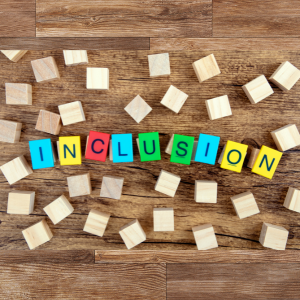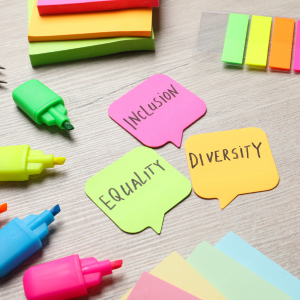
Written and curated by Saint Leo Faculty: Victoria Anyikwa, Ph.D. and Khalilah Caines, LCSW
Saint Leo University Diversity Statement:
At Saint Leo University, we believe that a vibrant and meaningful learning community embraces people from all backgrounds, races, genders, and ethnicities.
Our university community is united by a shared passion for excellence, respect, and integrity, and not divided by our differences.
Keeping and working to strengthen our culture of inclusiveness contributes to the development of our community and new ideas, and it supports an ethos of innovation.
Most importantly, it helps all members of the community learn, grow, and develop to their fullest potential.
Since its founding, Saint Leo University has always been a place where those who have a strong desire to learn are embraced, and tomorrow will be no different.
We welcome all to our rich learning community not because they are Catholic, but because we are!
Why Consider Inclusive Teaching and Learning?
The concept itself, inclusive teaching, recognizes the existence of ‘exclusion’ in education: exclusion of the experiences of individuals and groups from populations at the margins, populations based on culture, race, gender, socio-economic status, abilities, sexual orientation, religion, among a myriad of other factors. The inherent Power dynamics in the classroom are generally established, and the inclusive teacher is always aware of this. Through the purposeful engagement of Inclusive Teaching and inclusive learning, we, therefore:
- Acknowledge and embrace Diversity
- Recognize Power and Privilege
- Recognize different Points of View
- Recognize learning as Shared Knowledge
- Recognize teaching as Learning-Centered
- Recognize differences in Equity and Equality among Students
- Broaden knowledge by recognizing Diversity as an Asset
- Create a dynamic Learning Environment
- Build students’ confidence and Self-Esteem
As faculty strive to promote success for diverse students and social identities, there is a need for inclusive approaches to teaching.
Neurodiversity Articles
View our Inclusive Teaching resource pages:
What is Inclusive Teaching?
Inclusive Teaching Principles
Inclusion Strategies





